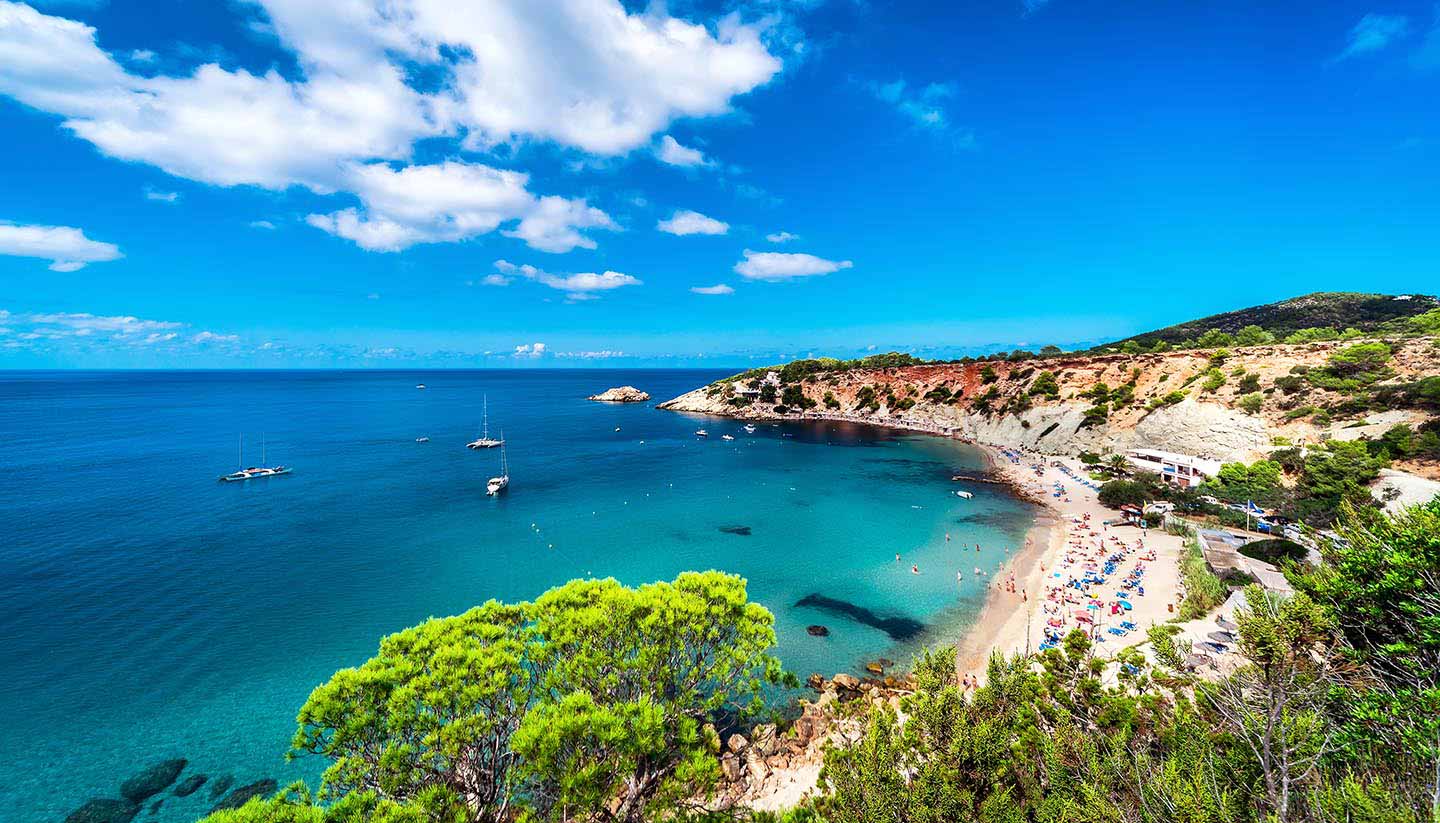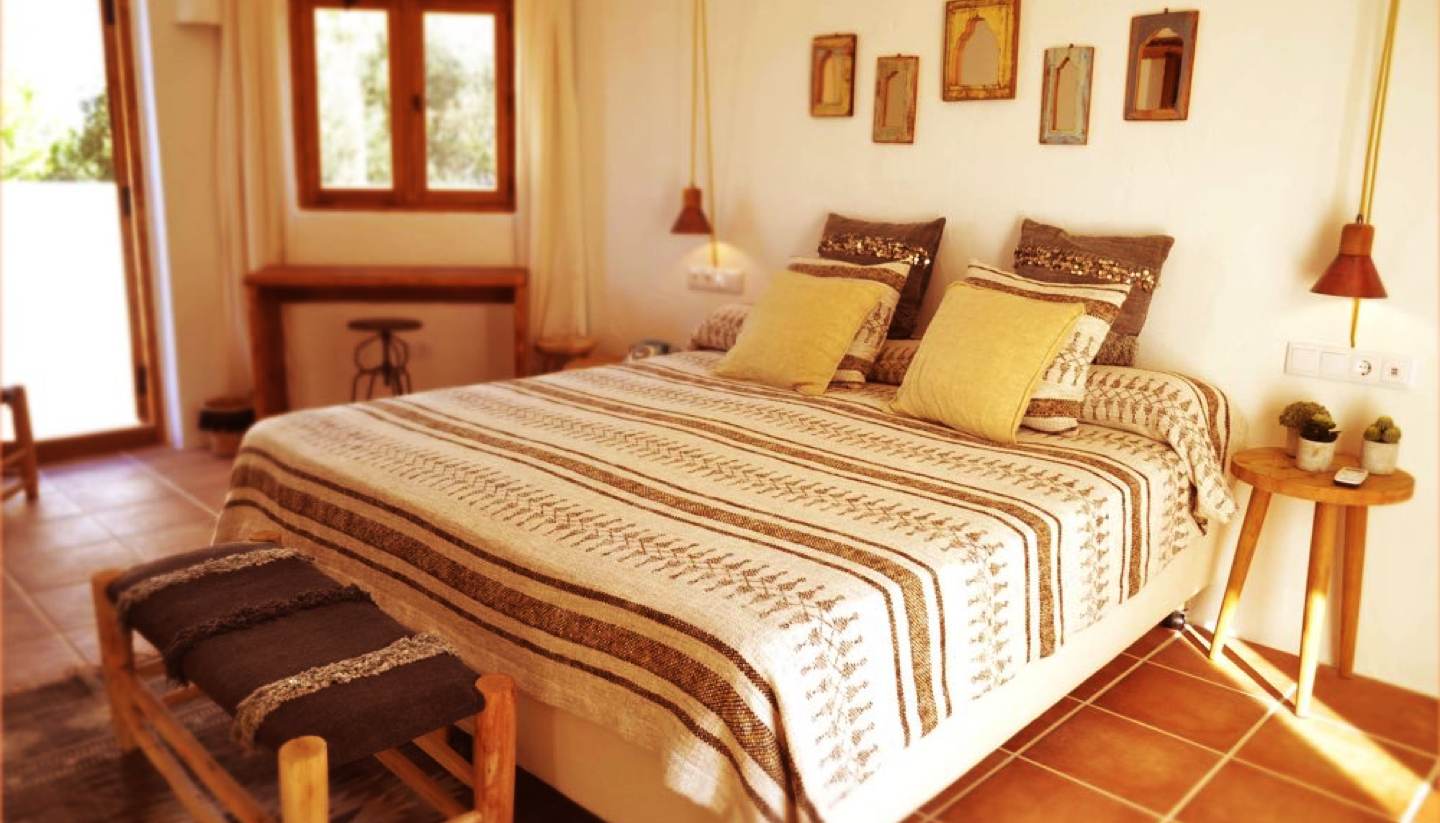Ibiza History, Language and Culture
History of Ibiza
Ibiza has been attracting a cosmopolitan crowd for centuries – Romans, Greeks, Moors, Phoenicians and Catalans all visited the White Isle, some arriving to trade and relax in the clear warm Mediterranean waters, others with conquest in mind.
Due to its strategic position between mainland Spain and Africa, Ibiza was highly prized as a colony and trading post and was visited by the Ancient Greeks and later ruled by both the Carthaginians and the Romans. The island fell briefly into the hands of the Vandals, and later the Byzantines, before being ruled for many centuries by the Moors – who were in turn conquered by the Catalans in 1235.
King James I conquered the island in 1235 and ordered the deportation of the local Muslim population and Christian colonists brought in from Girona. The island maintained its own self-government in several forms until 1715 when King Philip V of Spain abolished the local government’s autonomy.
During the early 20th century members of the avant-garde and, in particular, the Surrealist movement were drawn to Ibiza where they established alternative lifestyle communities based on intellectualism and creativity that were to later lay the foundations for the influx of hippies and beatniks during the 1950s and 60s. All of these influences are still visible and celebrated today, as seen in Ibiza Old Town, which exudes a thriving artistic heritage as well as a number of weekly craft markets held across the island.
The arrival of democracy in the late 1970s led to the Statute of Autonomy of the Balearic Islands, and today the island is part of the Balearic Autonomous Community, along with Mallorca, Menorca and Formentera.
In recent years Ibiza has been associated with its famous club scene (infamous if all tabloid newspaper stories are to be believed) and the modern invasion of international party people that ritually descend on the island during the summer months, although the government is keen to attract more salubrious tourists and has passed local laws requiring all nightclubs to close by 0600 at the latest.
Did you know?
• In 1969 the feature film More was filmed on the island and features a soundtrack by Pink Floyd including a track called Ibiza Bar
• Large areas of the island as registered as UNESCO World Heritage Sites, including the famous God’s Finger in Benirràs Bay
• Ibiza is one of many places thought to have been the birthplace of Christopher Columbus, and a monument in his honour can be found in Sant Antoni
Ibiza Culture
Religion in Ibiza
There is no official religion, but the majority of the population is Roman Catholic.
Social Conventions in Ibiza
Spanish life has undergone rapid change in recent decades, and many of the stricter religious customs are giving way to modernity, particularly in the cities and among women. In spite of this, traditions remain strong; hospitality, chivalry and courtesy thrive. Handshaking is the customary form of greeting between men, while women to whom one has already been introduced may be greeted with a fleeting kiss to either cheek. Normal social courtesies should be observed when visiting someone's home, and a small gift is always appreciated.
The evening meal is taken late, generally 2100-2200. Smoking in public places including is banned but many of the bars and clubs are a bit lax about this, and most have terraces where you can smoke too. However, enforcement of the ban is getting stricter all the time.
Language in Ibiza
While Castilian Spanish is the principal language of most of Spain, on Ibiza the official language is Catalan which has its own local dialect known as Ibicenco. Road signs are generally in Catalan, though maps are generally in Spanish with occasional Catalonian translations, so visitors should be prepared for places to have two slightly different names.



